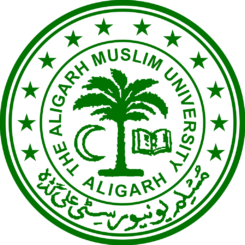
12-13 April 2025
ABOUT THE CONFERENCE
Urbanisation in the context of rapidly changing ICTs, inflation, pollution, and land politics has posed a number of socio-cultural, environmental and economic challenges, and also opportunities, regarding human population changes, social inequality, cultural conflict, migration, job security, deforestation, land-use changes, disasters, environmental degradation, ecological conservation, affordability, standard of living, etc.
The Sustainable Development Goals (SDGs) adopted by the United Nations in the 2030 agenda consist of 17 SDGs which target poverty eradication, pollution control, increasing sustainability, ensuring access to clean air, energy and water, sanitation and hygiene, gender equality, etc. For this, urgent interdisciplinary and collaborative efforts are needed from all stakeholders, in terms of research and development, sustainable development policies and infrastructure development.
The conference on ‘Sustainability and Morphology of the Built Environment’ is a platform for the academicians, researchers and young professional working in the fields related to Sustainability and Built Environment. It will act as catalyst for active discourse among various stakeholders, with the goal of generating practical recommendations for policymakers. Building capacities on best practises in architecture, planning, alternative solutions, sustainable and clean energy, pollution control and management, ecosystem restoration, affordable and sustainable spatial planning techniques would be some of the areas to be focussed upon. The conference seeks to explore the various models of collaboration, investment, development, design and research, which could exemplify the best practices and innovations in this area.
Subthemes of the Conference are listed below, but not limited to:
TRACK 1- Sustainability in Architecture, Planning & Design
Sustainability-Theory and Practices
Principles of Sustainability in Design
Sustainability in Architectural practices
Sustainability in Planning & Development
Sustainability in Interior Design
Sustainability in Landscape Design
Sustainability in Urban Design
TRACK 2- Sustainable practices in Built environment
Sustainability in Building Services
Sustainability in Building Construction
Advance construction technologies for sustainability
Role of Building Engineering Management
Green building materials
Green construction methods and technology
Social sustainability
Indoor Environment quality
Affordable housing
TRACK 3 – Conservation of Built Environment
Global Warming and Built Environment
Theory and Practices of Conservation
Principles of Conservation and their implementation
Sustainability in Conservation of Built Heritage
Sustainable Conservation of Natural Heritage
Sustainability in Conservation of Water Resources
TRACK 4 -Morphology of Built Environment
Sustainable and Green Buildings
Energy Efficient Buildings
Zero Energy Buildings
Automation in Buildings
BIM in Architecture
Next Generation Architecture
Disaster Resilient Architecture
Climate responsive Architecture
Built Environment and Climate Change
Solar Power for Sustainable Development
Pandemics and Built Environment
TRACK 5 – Built Environment and Public Health
Public Health and Air Pollution
Public Health and Water Pollution
Water Scarcity and its management
Waste water management
Rainwater Harvesting for recharge of ground water
Public Health and Solid Waste Management
Transport Design and Public Health
SUBMISSION OF ABSTRACT
The researchers are invited to submit the extended abstract not exceeding 500-800 words in length, without figures and tables. The authors of accepted abstracts are eligible to present their paper in the Conference. All the co-authors must register as Attendees and fill the registration form independently, whether they are attending or not attending the conference. The papers should be emailed to [email protected]
AWARDS
Best paper award shall be presented for each session.
Best paper presentation award shall be presented for each session.
Separate sessions for Academician/Practitioner and Student category.
REGISTRATION FEE FOR PAPER PRESENTATION AND ATTENDEE
| AUTHORS/ATTENDEES PRESENTLY IN INDIA | AUTHORS/ATTENDEES OUTSIDE INDIA & FORIGN NATIONALS |
| Early bird registration fee: | Early bird registration fee: |
| Academician– INR 3000/- Practitioner – INR 3500/- Student (UG, PG, Research scholar) – INR 1000/- Attendee (Student) – INR 500/- Attendee(Academician/Practitioner)-INR 1500/- | Academician– 70 USD Practitioner – 90 USD Student (UG, PG, Research scholar) – 30 USD Attendee (Student) – 20 USD Attendee (Academician/Practitioner)-50 USD |
| Late registration fee: | Late registration fee: |
| Academician– INR 3500/- Practitioner – INR 4000/- Student (UG, PG, Research scholar) – INR 1200/- Attendee (Student) – INR 500/- Attendee (Academician/Practitioner) – INR 1500/- | Academician– 90 USD Practitioner – 110 USD Students (UG, PG, Research scholar) – 40 USD Attendee (Student) – 30 USD Attendee (Academician/Practitioner) – 60 USD |
The online payment of registration fee can be done through net banking on the following bank details:
Account name: IC SUSTAINABILITY
Account number: 110217157520
Bank name: CANARA BANK, AMU BRANCH
IFSC: CNRB0005247
MICR CODE: 202015013
FOREIGN EXCHANGE/ SWIFT CODE: CNRBINBBBFD
BAR CODE:

The registration fee should be submitted after the acceptance of the abstract. Once deposited, the registration fee shall not be reimbursed. Registration fee for participants includes the conference kit, access to conference sessions, and lunch. The Attendees shall have access to all sessions and lunch. The research scholars and students are required to submit a valid identity card after abstract acceptance, in order to avail the concessions in registration fee. All interested participants must register and upload a scanned copy of online transaction receipt on the following link.
Submit your abstract to [email protected]
REGISTRATION LINK
https://forms.gle/fL5nMZA3afZheAWi8
PUBLICATION
The abstracts shall be accepted after blind peer review and published as Conference proceedings with ISBN number.
ACCOMMODATION
The registration fee does not include accommodation. However, assistance in finding the places for stay may be provided, if required. Limited accommodation (on payment by the participant) may also be available at the University Guest house, on first come first serve basis.
IMPORTANT DATES
Abstract submission ends: 15 March 2025
Notification of acceptance: 25 March 2025
Early bird Registration ends: 30 March 2025
Late registration ends: 05 April 2025
CHIEF PATRON
Prof Naima Khatoon
Hon’ble Vice Chancellor AMU
PATRON
Prof Nesar Ahmad
Dean, Faculty of Engineering & Technology, AMU
Prof Mohammad Muzammil
Principal, Zakir Hussain College of Engineering & Technology, AMU
CONVENER
Prof. Sharmin Khan
Chairperson, Department of Architecture
CO-CONVENER
Prof Mohd Khalid Hassan
Prof Mohammad Farhan Fazli
ORGANIZING COMMITTEE
Mr Sanjeev Maheshwari
Mr T R Warsi
Dr S M Noman Tariq
Mr Faraz Farooq
STUDENT COORDINATOR
Event Coordinator
Mr Mujjassim Ahmad Bhati
Event Organizers
Mr Mohd Junaid
Mr Mohd Faisal Khan
Ms Yusra Batool
Technical Coordinators
Mr Arham Shahid
Mr Abdul Hannan Subhani
Mr Abdullah Anwar
Registration Coordinators
Mr Azhar Irshad
Ms Aatikah Hasan
Ms Minha Khan
Correspondence Coordinators (Contact for general queries)
Ms Nikhat (+91 90273 22654)
Transportation Coordinators (Contact for travel assistance)
Mr Mohd Saquib Jawed (+91 75339 97439)
Mr Alhamd Ahmad (+91 721 754 9934)
Accommodation Coordinator (Contact for booking assistance)
Mr Mohammad Saboor (+91 98709 33635)
Mr Mohammad Sadiq (+91 84333 94937)
ADVISORY COMMITTEE
Prof. Kheir Al-Kodmany, Chicago, USA
Prof. Javed Mallick, King Khalid University, KSA
Prof. Peng Du, Thomas Jefferson University, Philadelphia, PA
Prof. Jagbir Singh, Amity University, Lucknow, India
Prof. Sanjeev Singh, SPA, Bhopal, India
Prof. Debashish Sanyal, NIT, Raipur, India
Prof. Y. K. Garg, MANIT, Bhopal, India
Prof. Karamjeet Singh Chahal, GNDU, Amritsar, India
Prof. Bhupinder Pal Singh Dhot, PTU, Bhatinda, India
Prof. I. H. Farooqi, AMU, Aligarh, India
Prof. Fareed Mehdi, AMU, Aligarh, India
Prof. Salma Ahmad, AMU, Aligarh, India
Prof Badar Jahan, AMU, Aligarh, India
Prof Vibha Sharma, AMU, Aligarh, India
Time Schedule
| Day 01 | |||
|---|---|---|---|
| Day 02 |
